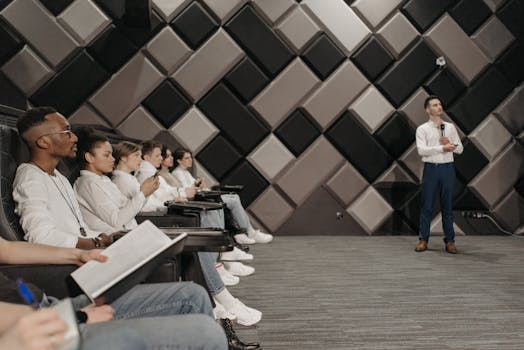Debate teams shaping tomorrow’s public speakers
Debate has long been recognized as a powerful tool for developing critical thinking and persuasive speaking skills. From high school classrooms to international competitions, debate teams have served as training grounds for the next generation of public speakers. But in today’s rapidly evolving world, where communication is constantly changing, how do these debate teams continue to shape tomorrow’s public speakers? In this article, we will explore the ways in which debate teams are evolving to adapt to the modern world and the impact they have on the development of effective public speakers.
The Evolution of Debate Teams
The traditional format of debate has undergone significant changes over the years. In the past, debate teams focused primarily on formal, structured debates where participants were assigned a specific topic to argue. However, as the world becomes increasingly interconnected and complex, the format of debate has also evolved.
Ensuring Diversity and Inclusion
One of the most significant changes in modern debate teams is the emphasis on diversity and inclusion. In the past, debate teams were often comprised of students with similar backgrounds and demographics. However, today’s debate teams strive to include a diverse range of voices and perspectives. This not only encourages a more well-rounded and nuanced debate but also prepares students for a dynamic and diverse workforce.
Emphasizing Collaboration over Competition
Another key shift in the debate world is the focus on collaboration rather than competition. While traditional debates often pit teams against each other in a winner-takes-all scenario, modern debate teams understand the importance of working together. By encouraging students to collaborate and build off of each other’s arguments, debate teams are preparing students for a world where teamwork and collaboration are essential for success.
The Impact on Public Speaking Skills
So how do these changes in debate teams shape tomorrow’s public speakers? The answer lies in the skills that are developed through modern debate practices.
Critical Thinking and Analysis
Debate teams sharpen students’ critical thinking and analytical skills, helping them to dissect complex arguments and develop their own informed opinions. This skill is crucial for effective public speaking, as the ability to think critically allows one to anticipate and respond to potential counterarguments and handle questions from the audience confidently.
Effective Communication
Debate teams also nurture students’ communication skills, teaching them to speak clearly, persuasively, and confidently. This is essential for public speaking, as the ability to articulate one’s thoughts and ideas in a compelling and engaging manner is crucial for connecting with an audience and conveying a message effectively.
Adaptability and Resilience
The ever-changing nature of contemporary debates requires students to be adaptable and resilient, quickly formulating arguments and responding to unexpected challenges. This prepares students to be adaptable public speakers, able to think on their feet and adjust to any situation that may arise during a speech or presentation.
The Future of Debate Teams
As technology continues to advance and the world becomes increasingly complex, the role of debate teams in shaping tomorrow’s public speakers will only become more critical. Debate teams will need to continue adapting to changes in communication and incorporating diverse perspectives and voices to develop well-rounded and effective public speakers.
So if you’re a student looking to develop your public speaking skills, consider joining a debate team. And if you’re a parent or teacher, encourage young people to get involved in debate and witness firsthand how these teams are shaping the next generation of powerful and persuasive speakers.
In conclusion, debate teams have long been recognized for fostering critical thinking and communication skills. And as they evolve to adapt to a constantly changing world, debate teams will continue to shape tomorrow’s public speakers, equipping them with the skills they need to succeed in a competitive and ever-changing workforce.










